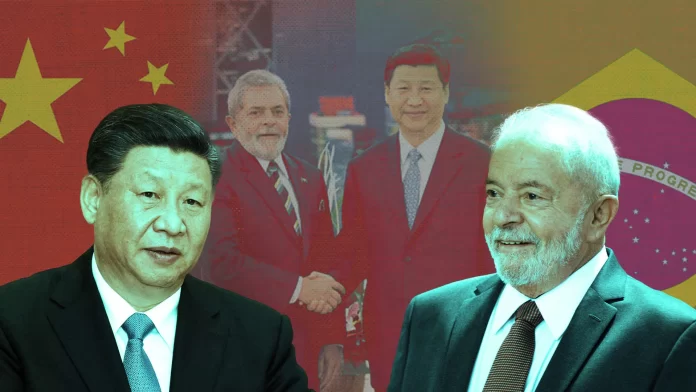Brazilian President Luiz Inacio Lula da Silva will pay a state visit to China from March 26 to 31, Chinese Foreign Ministry spokeswoman Hua Chunying said today.
Fellow foreign affairs spokesman Wang Wenbin said that “China and Brazil are major developing countries, important emerging market countries and comprehensive strategic partners.”
He said that the visit should open “a new page in Sino-Brazilian relations.”
Since returning to the Brazilian presidency on January 1 this year, Lula has moved Brazil away from subservience to the United States.
In recent weeks, Lula’s Brazil sent a delegation to Venezuela, refused to sign a United Nations resolution condemning Nicaragua, allowed Iranian warships to dock in Rio de Janeiro and refused to send weapons to Ukraine.
While these moves may have raised eyebrows in the US and Europe, it is part of a trend towards greater independence by nations of the global South.
Experts also say that Lula is reactivating Brazil’s decades-old principle of non-alignment enshrined in its constitution to carve out a policy that best safeguards its interests in an increasingly multi-polar world.
Brazil’s approach involves “talking to all states at all times without making moral judgements, while respecting certain red lines,” said Feliciano Guimaraes, a political scientist at the think tank Brazilian Centre for International Relations.
READ ALSO: France refuses to comment on Iraq crash of helicopter carrying PKK terrorists
Brazil has also refused to be drawn into the increasing tensions over China.
China surpassed the US as Brazil’s main trading partner in 2009 and the relationship has continued to grow in strength.
Between 2007 and 2020 China invested $66.1 billion (£54.3bn) in Brazil, according to the Brazil-China Business Council.
“Brazil needs a strategy that allows it to manoeuvre. The principle of non-alignment allows it to have channels open with all states to protect itself,” Mr Guimaraes said.













